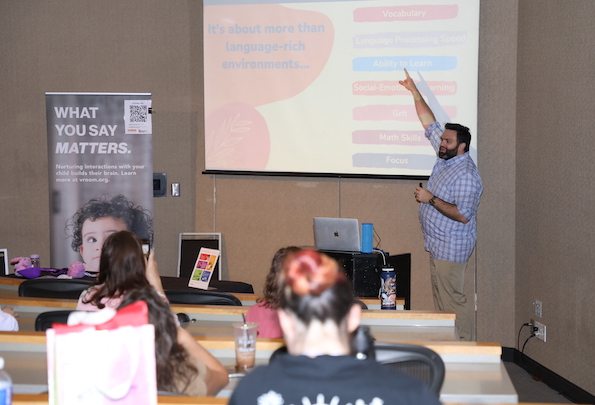Finding and affording quality child care has always been a struggle for working parents. But as a result of the pandemic, many child care operators had to shut their doors and were not able to recover enough to open back up, creating an even bigger shortage of qualified and affordable child care providers nationally, but especially here in Utah.
To address the child care crisis in Utah, the State Office of Child Care gave Salt Lake Community College’s Workforce and Economic Development a grant to provide training for those running home-based or center-based programs. The grant, Business Training and Coaching for Child Care Providers, enabled courses on how to draft a business plan, create a budget, basic marketing, and how to apply for funding and grants, for providers.
With the success of the program, and the overwhelming number of providers signing up, the Office of Child Care renewed the grant and added additional funds to create two new programs, Budgeting and Leadership Principles, and to put on a special conference for education and networking.
On Saturday, August 12, SLCC’s Corporate Training in partnership with the Department of Workforce Services Office of Child Care, hosted a child care summit for all the child care workers within the state of Utah. Professor Susan R. Madsen, Director Utah Women in Leadership Project, was the keynote speaker and addressed the audience about the issues facing women who work in finding safe, affordable child care.
Attendees were able to participate in all five presentations, such as Trauma-Informed Practices for Early Childhood Educators and Caregivers, Early Learning and the Benefits for Children, and The Power of Early Learning Through Play. Over 120 child caregivers attended, from center to home-based, coming from as far east as Roosevelt, north from Brigham City, and south from St. George.
Candice Sakach, caregiver from Discovery Clubhouse (center-based) which has locations from St. George to Ogden, attended Saturday’s summit. Her company sent her to obtain required service hours but she also came to learn more about child care and gain insight on how she can further her career. “I could go to McDonalds and make more money but the only reason I am in this career and this field is because I feel a passion for it and I feel called to do it instead of flipping burgers,” she said.
Lauren Fredman, a presenter from the Office of Child Care, shared that child care professionals have such a difficult job and are often so exhausted at the end of the day that sometimes shifting through all the opportunities can be overwhelming. “On top of having your own life and family and your career I think it is nice to stop and hear about all this support available,” she said. “Some people just don’t know this exists because they are trying to survive and live their life.”
Part of the summit was not only to provide training but also to get the word out about ongoing scholarships and higher education opportunities. “It’s so nice to meet face to face and say, ‘hey, you hear from us through email about all the things we can do to help you and we’re here to help you along your career pathway, whatever your goal is,’” said Lauren.
One of those opportunities shared at the summit was that Colette Cox from the Governor’s Office of Economic Opportunity announced a special webinar for business resources for the child care industry. Email Colette Cox at ccox@utah.gov for more information. SLCC, offered through Corporate Training, has always been providing classes for free online for child care providers. This conference was a part of the education they provide.
Another opportunity shared at the conference was Utah's Career Ladder System that offers a way for caregivers to track professional accomplishments and to recognize academic achievement related to early childhood education fields. Child care providers earned six career ladder credits just by attending the summit. These credits are reviewed by the state and can be redeemed for college credits. The goal of the system is to improve the professionalism and quality of the workforce, and ultimately positively impact Utah’s children.
“I love seeing the [children’s] lightbulb moments. Watching a child, where something clicks for them for the first time,” said Candice. “Just learning and growing and helping them get ready to succeed in the world. This child I taught could become a famous football player or president and to know I had an impact on that child’s life, that I helped shaped who they are, I got to be a part of it.”
Sponsors of the event included SLCC, Department of Workforce Services Office of Child Care, Waterford.org and the Governor’s Office of Economic Opportunity. To find out more information visit the Office of Child Care Professional Development.




Comments
Post a Comment